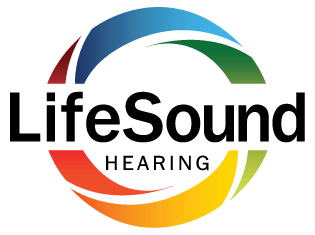Hearing loss often starts out with slight, almost unperceivable changes that can be easy to overlook. Actually, it is normally family and friends who tip off someone to their hearing problem. While children are regularly assessed, many adults do not think about scheduling a hearing exam like they would for their vision.
Signs You Might Need a Hearing Exam
There are lots of daily situations where you may not be hearing everything and definitely not hearing what others are.
- Are you frequently asking people to repeat themselves?
- Do you notice that you are increasing the volume on your TV?
- Does background noise in a busy restaurant make it harder to hear and comprehend conversations?
- Are miscommunications or misinterpretations in your personal or professional life causing disputes?
These kinds of situations can happen on a day-to-day basis and continue to affect relationships.
Important Benefits of Scheduling Routine Hearing Exams
The American Speech-Language-Hearing Association standards state that adults should get a hearing screening every 10 years up until age 50, and adults over the age of 50 should have one every 3 years.
1. Genetic makeup
If other members of your family have hearing problems, this is an excellent reason to schedule a hearing exam with a hearing specialist.
2. Establish a Reference Point for Your Current Hearing Level
By knowing your hearing ability in each ear, you can pinpoint potential issues or areas for improvement. You may be missing certain sounds or experiencing slight hearing difficulties that could signal the need for additional assessments or interventions.
3. Helps Measure Future Changes
Each new test will compare new information with past tests. Some changes occur slowly, and the tests will recognize any changes even if you can’t.
4. Helps Diagnose and Treat Early Problems
New tests track changes and how rapidly they are occurring, which can help identify and treat issues early, such as an accumulation of earwax or noise-induced hearing loss.
5. Pinpoint Medical Conditions
Sometimes hearing loss is a symptom of an intrinsic medical condition including diabetes and high blood pressure (linked to hearing loss and tinnitus), plus cardiovascular disease and kidney disease. Managing the root medical conditions that are causing it could potentially alleviate hearing loss.
6. Stop Further Damage
When a patient is without treatment, they can become depressed and fear social settings, inviting seclusion and further depression. Seniors who have hearing issues can have increased accidents when they don’t hear warning signals like car horns, smoke alarms, and other sounds that mean danger. Moreover, untreated hearing loss is associated with dementia and falls.
Getting the Answers You Need
You might have wondered if you’re dealing with some degree of hearing loss. You now have the information you need, including the awareness that hearing aids can have a positive impact on multiple facets of your life, improving not only your ability to hear, but also your relationships with loved ones, colleagues, and social circle.
After getting the right hearing aids to address your hearing loss, you will experience improved listening ability in conversations, work meetings, and while enjoying the sounds of your child’s laughter or a loved one’s voice.
Reach out to us to arrange a hearing assessment or if you’re worried that you may be experiencing hearing difficulties.

